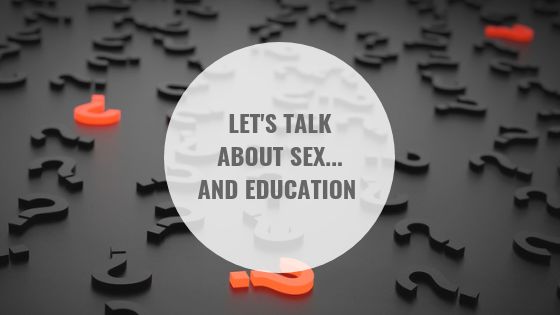Julie Entwistle, MBA, BHSc (OT), BSc (Health / Gerontology)
Sexuality is an integral part of being human and is another one of those concepts that exists on a spectrum. It contains with it physical, emotional, social, behavioral and relational elements that impact us all at various levels and times in our lives. As an occupational therapist, I have had many conversations with clients about changes in sexual activity post-disability, injury or trauma. Some of these conversations are as simple as “sex is the last thing on my mind” to “I would just like to sleep beside my spouse again”…to “do you have any resources or devices you can suggest to help me re-engage sexually”…
It was in 2000 when, during my OT training, we had a lecture designed to educate and inform us about adaptive sexuality and sexual activity. The lecturer was perfect – he was a social worker, openly gay, and owned a retail store for adult intimacy items. He was very knowledgeable about the topic of adaptive sexuality, counselled people at his store, and the topic clearly did not make him at all uncomfortable. But that was not true of our class. Soon after he started his lecture and produced some adaptive items that his clients have found helpful, half of our class got up and left (in fairness, he told us all if the topic made us uncomfortable he would not be offended if we left). I was amazed and disappointed at the same time. Here we were, in the process of being trained to help people function in all areas of life after disability, and some members of my class were not open to learning about this. I guess that explains why the spectrum exists – because we all have various levels of comfort with such a vulnerable, intrusive and often “taboo” topic.
Fast forward almost 20 years to the first weeks of school, I can understand the current debate in Ontario over the topic of sex and sex education and fully appreciate both sides of the argument. But as a parent of four teenage girls, I must ask: “what is best for the kids”? Well, that answer too will be complicated – for some, it will be best for them to learn from their parents and for others, the school will do a better job of educating them in a way that is respectful, honest, inclusive and forthcoming. What I think we don’t want as parents, educators, or as a society, is for kids to “figure it out on their own” and turn to the internet and social media to get answers to their important questions. As we all know, the internet contains a lot of harmful images, video, and opinions that could negatively impact them if they go looking.
Of greatest concern, however, is the mental health of the kids who have thoughts, feelings, emotions or experiences with sexuality that are unconventional, confusing, violating or just plain scary. If these kids are not given the proper channels, at home or school, to talk and sort-through, understand, cope with and manage these, how will they adjust? We know kids today are increasingly anxious and depressed, we know suicidal ideation and risk is high in youth, so how can we best support them? I personally don’t think that is through undermining research that tells us these conversations need to happen, or by resurrecting outdated anything that we know is obsolete to appease those (like half of my OT class) who find these topics, and the evolution of sexuality over the last 20 years, uncomfortable. Kids are smart and instinctive – if adults are fighting over this, the entire concept of helping them through the many phases of sexual development may become something they won’t allow any caring and responsible adult to be a part of. That would be a poor outcome for us all.

